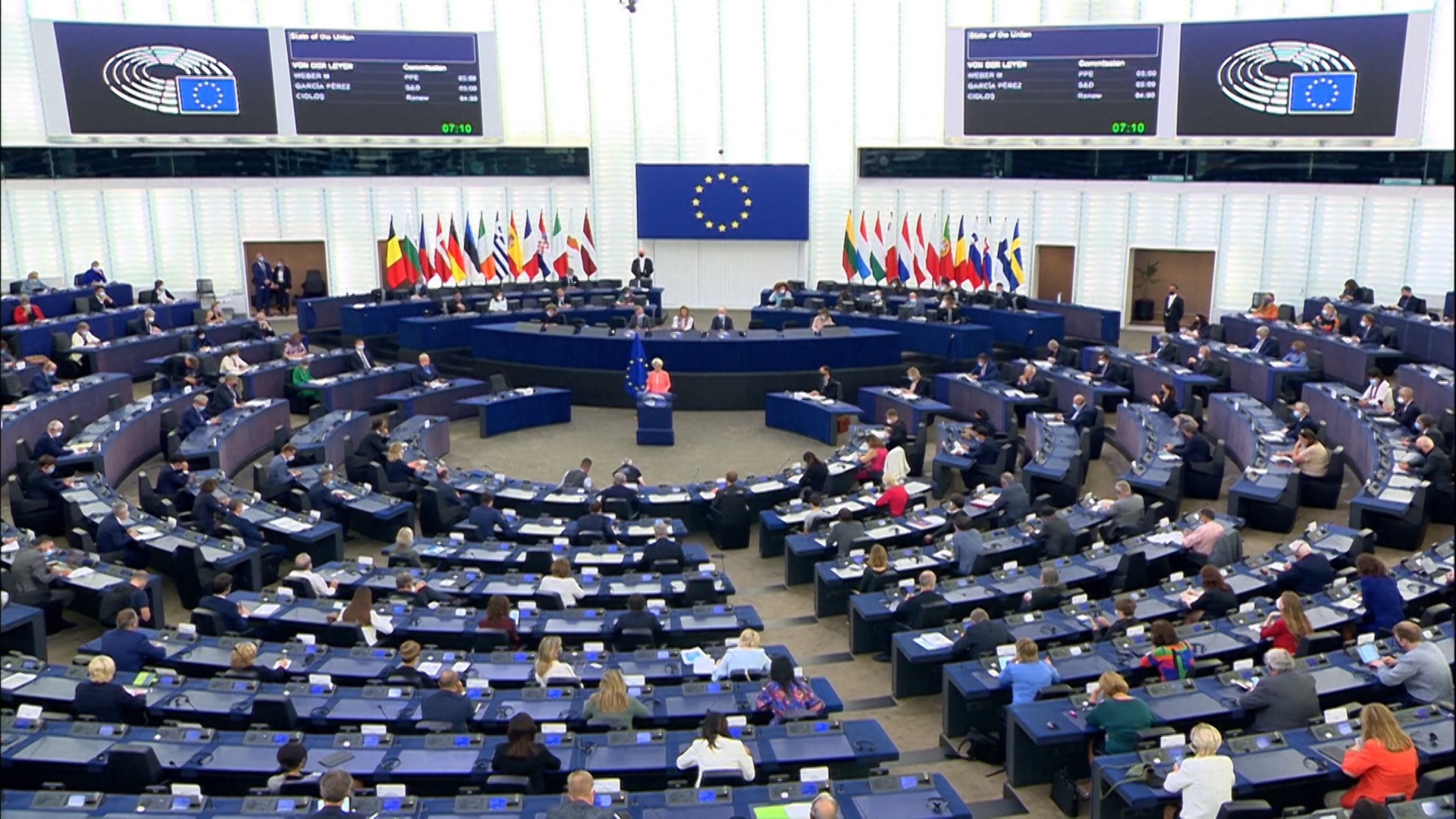02:28

Members of the European Parliament and the deaf community are calling on the European Commission to provide sign language interpreters for major events.
The long-running debate was reignited last month when European Commission President Ursula von der Leyen gave her annual State of the Union speech with no sign language interpretation provided in the live broadcast.
She did, however, speak in English, German and French. The address was also translated live into more than twenty languages.

European Commission President Ursula von der Leyen gives the annual State of the Union address. / EBS
European Commission President Ursula von der Leyen gives the annual State of the Union address. / EBS
Katrin Langensiepen, a German Member of the European Parliament from the Greens / European Free Alliance group, called the omission "highly discriminatory" in an opinion piece for The Parliament Magazine.
The criticism comes after von der Leyen highlighted the European Union's inclusivity in her address.
"It is a Union where we strengthen our individual liberty through the strength of our community. A Union shaped as much by our shared history and values as by our different cultures and perspectives," said von der Leyen.
Despite this nod to the EU's diversity, members of the deaf community in Brussels say they have been calling for more accessibility to these major speeches for years.

Mark Wheatley from the European Union of the Deaf. / FSN
Mark Wheatley from the European Union of the Deaf. / FSN
"The European Union of the Deaf was really disappointed that deaf people in Europe were not able to access this very important address. We've been working with the European Parliament, with the European Commission for accessibility, so it's really unfortunate that deaf Europeans had no access to this," said Mark Wheatley, Executive Director of the European Union of the Deaf, an organisation that represents deaf people across the continent.
The first deaf Member of the European Parliament, Adam Kosa, was elected in 2009. The body uses sign language interpreters to include deaf members in debates.
However, more than a decade later, accessibility is still lacking for a key moment in the European Union's calendar.

The first deaf Member of the European Parliament, Ádám Kósa, was elected in 2009. / EBS
The first deaf Member of the European Parliament, Ádám Kósa, was elected in 2009. / EBS
In a statement, the European Parliament said that "interpretation into sign language to Members that require it to exercise their democratic mandate is ensured." It also stressed that the speech "is always made available in written minutes after it is delivered."
Despite another year with no sign language interpretation, campaigners say accessibility is slowly improving.
"To be fair, there are weekly press briefings and they have provided sign language interpreters. For this address, it was really unfortunate because we've been advocating for access and we hope that by the next address they will do this," said Mark Wheatley, referring to the European Commission's press conferences.
However, when asked about plans for 2022, neither the European Commission nor the European Parliament would confirm that there will be a sign language interpreter for next year's State of the Union address.

